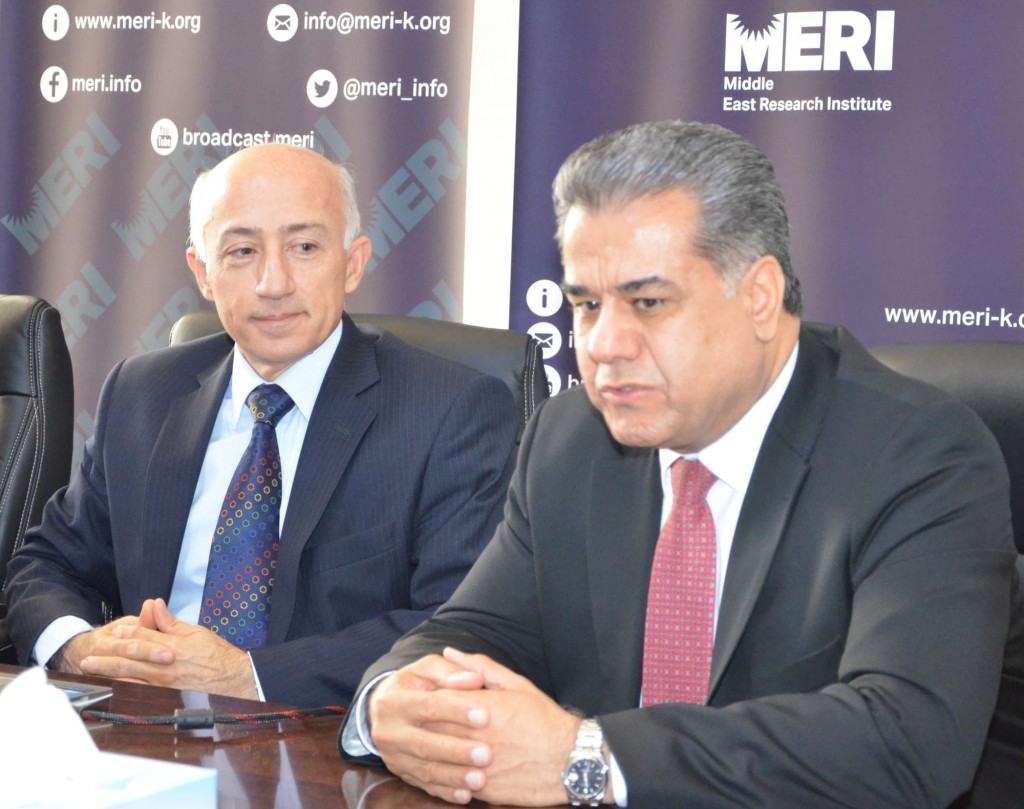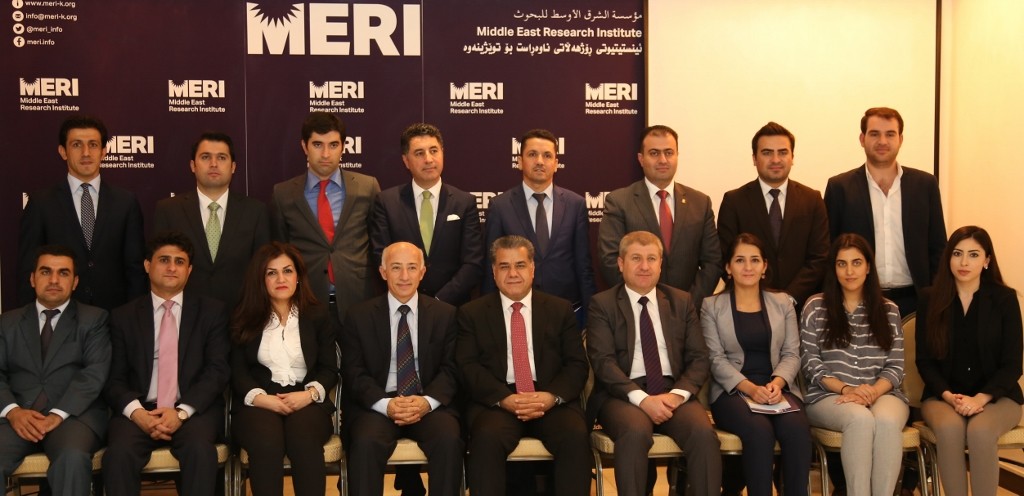“Policy research institutes like MERI are indispensable to governmental institutions in democratic countries, and we would be delighted to engage in a collaborative partnership an sign an MoU with MERI” said the Head of Department of Foreign Relations (DFR) Minister Falah Mustafa in a visit to MERI’s office on Wednesday, September 16th, 2015.

Prof. Dlawer Ala’Aldeen & Minister Falah Mustafa, Head of Department of Foreign Relations in KRG
Minister Mustafa was accompanied by Ms. Siham Jabali, the Assistant Head, and 15 senior members of staff at DFR’s directorates. The aim of the meeting was to explore areas of collaboration and cooperation between the two institution, particularly on policy research, debating strategies and initiating projects.
Professor Dlawer Ala’Aldeen, President of MERI reciprocated and emphasised the need to build bridges between Kurdistan’s political elite and visiting international scholars, diplomats and policy makers. He said that “visiting diplomats rarely get the chance to meet Kurdistan’s intellectuals during their brief tours in Kurdistan”. “Most of them only meet political leaders behind closed doors”, he added.

MERI can help bridge this gap by creating a neutral environment where visitors and KRG policy makers are exposed to each other. This will help them educate each other and develop better insights about each other’s political cultures.
Minister Mustafa emphasized that MERI’s diverse research programmes, rigorous analysis and policy recommendations are important for DFR’s work, therefore, would welcome early engagement in MERI’s research and intellectual debates.
* * * * *
About MERI: The Middle East Research Institute is Iraq’s leading policy-research institute and think tank. It is an independent, entirely grant-funded not-for-profit organisation, based in Erbil, Kurdistan Region. Its mission is to contribute to the process of nation-building, state-building and democratisation via engagement, research, analysis and policy debates.
MERI’s main objectives include promoting and developing human rights, good governance, the rule of law and social and economic prosperity. MERI conduct high impact, high quality research (including purpose-based field work) and has published extensively in areas of: human rights, government reform, international politics, national security, ISIS, refugees, IDPs, minority rights (Christians, Yezidis, Turkmen, Shabaks, Sabi mandeans), Baghdad-Erbil relations, Hashd Al-Shabi, Peshmarga, violence against women, civil society. MERI engages policy- and decision-makers, the civil society and general public via publication, focused group discussions and conferences (MERI Forum).

